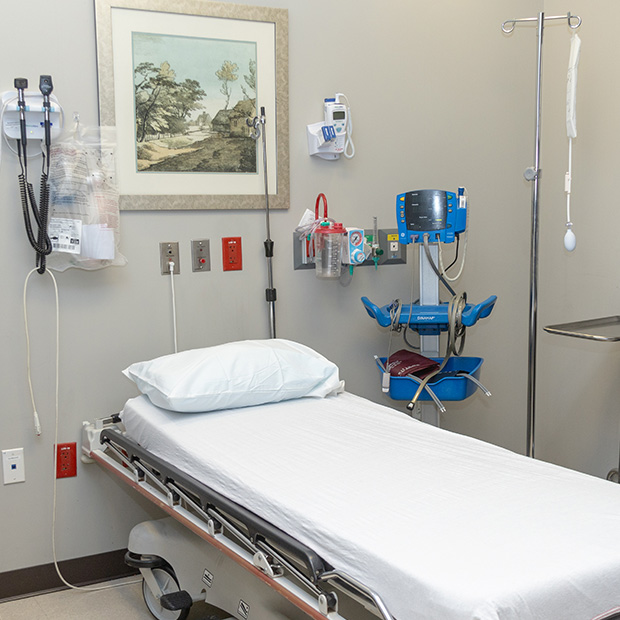
Dallas Emergency Care for Wounds
Identifying Emergency Wound Situations
Most wounds are not emergencies. If a wound is severe and needs treatment, this will usually reveal itself over time if the wound does not start to heal or the pain gets worse. However, there are emergency situations where wounds need treatment right away. Be sure to familiarize with the signs of an emergency wound so that you can take appropriate action.
You should see an Advance ER physician immediately if your wound is:
- Deep incision of more than ½ inch
- Open wound
- Bleeding that doesn’t slow down with direct pressure
- Severely bleeding
- Bleeding that lasts longer than 20 minutes
- Caused by a serious accident
- Caused by a puncture
- Caused by an animal bite or scratch
- Caused by a snake bite
- Warning signs of an infected wound:
- Dark and dry area
- Wound grows in size or doesn’t heal
- Drainage increases
- Pus forms – green, yellow, brown or cloudy; can have a strong odor
- Fever
- Sore lump in armpit or groin
“If you experience any of these symptoms of an infection, come to Advance ER right away,” said Dr. Allen. “The nice thing about Advance ER is that we are always open and ready to help any time you are injured.”
Contact the professionals at Advance ER today to learn more about emergency care for wounds in Dallas.
Understanding Latent Wound Emergencies
One of the biggest risk factors you are exposed to with a wound or abscess, emergency and otherwise, is infection. Even non-emergency wounds can turn into an emergency situation if an infection takes root.
Symptoms of an infected wound include:
- Wounds that show no signs of healing after a week
- Odd odors coming from the wound
- Discoloration around the wound
- Pain that does not lessen
- Warm skin around the wound
- Swelling around the wound
- Difficulty moving the area around the wound
Infected wounds & abscesses may not require a trip to the emergency room, but you should not delay getting treatment for even a day longer if you notice the symptoms. At Advance ER, we have an urgent care/walk-in clinic that can provide same-day treatment for non-emergency conditions.
How Do I Care for My Wound?
If your wound is bleeding heavily, you need to try to reduce the bleeding and find someone to drive you to the nearest Advance ER. Use a clean cloth to put constant pressure on the wound. If it is a puncture wound and the foreign object is still embedded, do not remove it and do not apply pressure. If possible, go to Advance ER and let the physician treat you. If the object is too large, call 911 and wait calmly for medical help to come to you.
“Once you get to Advance ER, your physician will conduct the initial treatment for your laceration or wound,” said Dr. Allen. “From there, you will need to keep it clean and dry, change the bandages, give it exposure to air and follow the doctor’s other instructions carefully. Once it is stabilized, the risk of infection drops rapidly.”
Initial treatments for wounds include:
- Examination
- Wound cleaning – flushing it out, getting all the dirt and foreign objects out
- Stitches – closing the skin with either sutures, skin glue or staples, after numbing the skin
- Bandaging
- Tetanus shot – may be needed to prevent tetanus disease, also known as lockjaw
- Penicillin or antibiotic – may be prescribed to prevent infection
- Pain reliever – for severe injuries
Different Types of Wounds
Here are some descriptions of different types of wounds:
Abrasions
A common name for this is “road rash”. It is caused by a rubbing, scraping motion across the skin. Severe abrasions from any kind of vehicle accidents or from high rates of speed could require medical attention.
Lacerations
when the skin is cut by something sharp. A laceration can be deep and involve several layers of tissue and severe bleeding, requiring medical attention. Put pressure on the wound to try to control the bleeding as you go to the nearest Advance ER.
Punctures
A foreign object that breaks and enters the skin. Animal teeth or claws, nails, metal stakes or sharp objects can puncture the skin. Puncture wounds require medical attention. If possible, leave the object in the skin and go to Advance ER right away.
Cut or incision
A sharp object can cause an incision that can damage tendons, ligaments and more. Cuts that are deep and bleed a lot require medical attention. Apply pressure to the wound as you go to the nearest Advance ER.
Skin tear
When the skin is stretched and pulls apart. A skin tear is also known as an avulsion. Avulsions can occur during serious accidents or violent incidents such as explosions or gunshot wounds. Skin tears can be serious and require medical attention.
Advance ER is Ready to Help You
At Advance ER, you’ll receive immediate treatment from a board-certified physician with over 15 years of experience. Our concierge service and VIP treatment will help you relax and recover from your injury. You will enjoy the comforts of your private room and our hospitality menu offers an array of cold beverages and snacks. Our friendly staff are experts at helping you start to feel better again.

-
 The Advance ER Team Providing Reliable Medical Care
The Advance ER Team Providing Reliable Medical Care -
 ER Insight Vital Knowledge for Life-Saving Moments
ER Insight Vital Knowledge for Life-Saving Moments -
 ER Knowledge Hub Your Source for Expertise on Health, Emergencies, and Beyond
ER Knowledge Hub Your Source for Expertise on Health, Emergencies, and Beyond
Common Questions About Wound Care
Is it safe to clean a deep wound at home?
While cleaning minor cuts and scrapes at home is appropriate, deep wounds require professional cleaning by a medical professional. At Advance ER, our team utilizes sterile techniques to remove debris and reduce the risk of infection.
What is the recovery time for returning to work after treatment?
Recovery time depends on the severity of the wound. Our team will provide specific guidance on returning to work based on your individual circumstances. Generally, more extensive wounds require longer rest periods for optimal healing.
How long will I spend at the ER for wound treatment?
Treatment times vary depending on the severity of the wound. Our goal is to minimize your wait time and provide efficient care while ensuring a thorough evaluation and treatment plan.
How can I minimize scarring after a wound heals?
While complete scar prevention may not always be possible, following your doctor's wound care instructions diligently, including proper cleaning and dressing changes, can minimize scarring. In some cases, silicone scar gels may also be recommended.
Contact Advance ER to learn more about emergency care for wounds in Dallas.



[8].2112210947272.png)